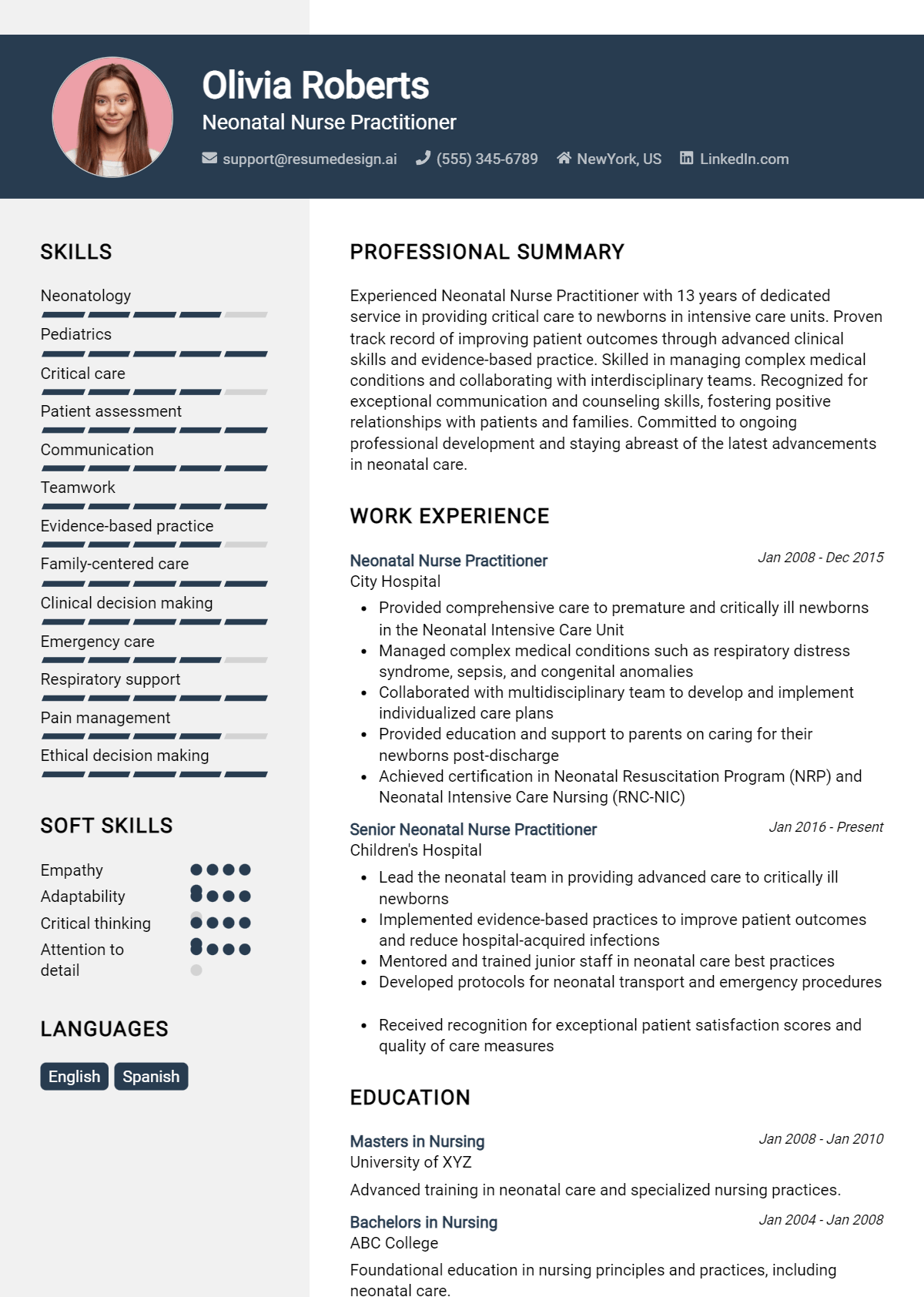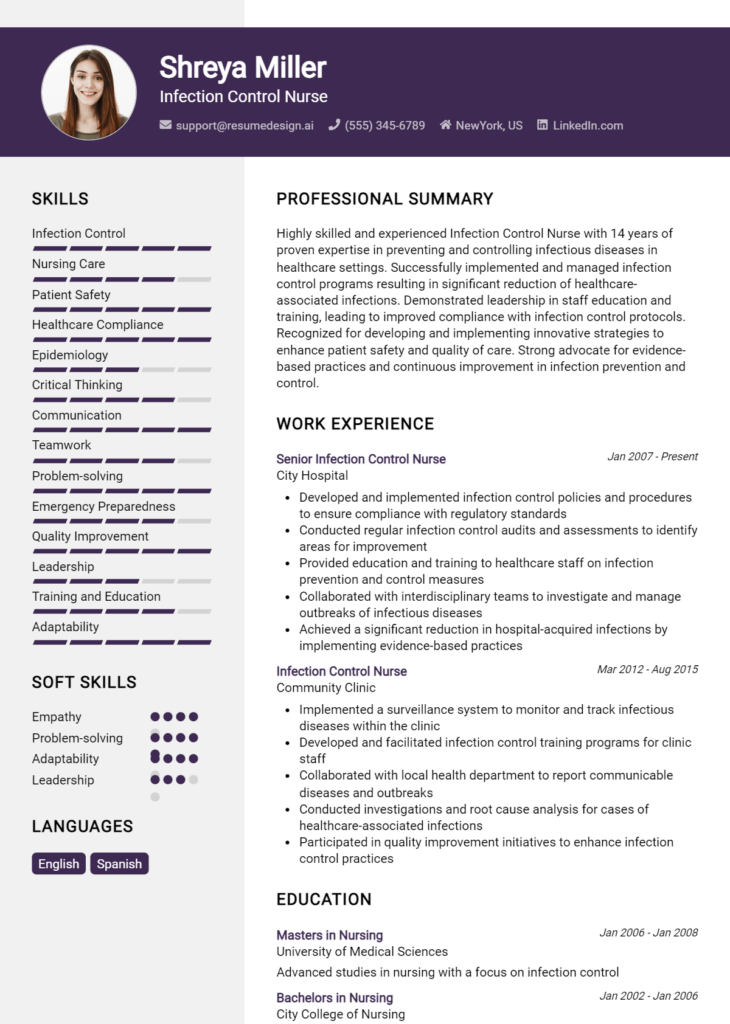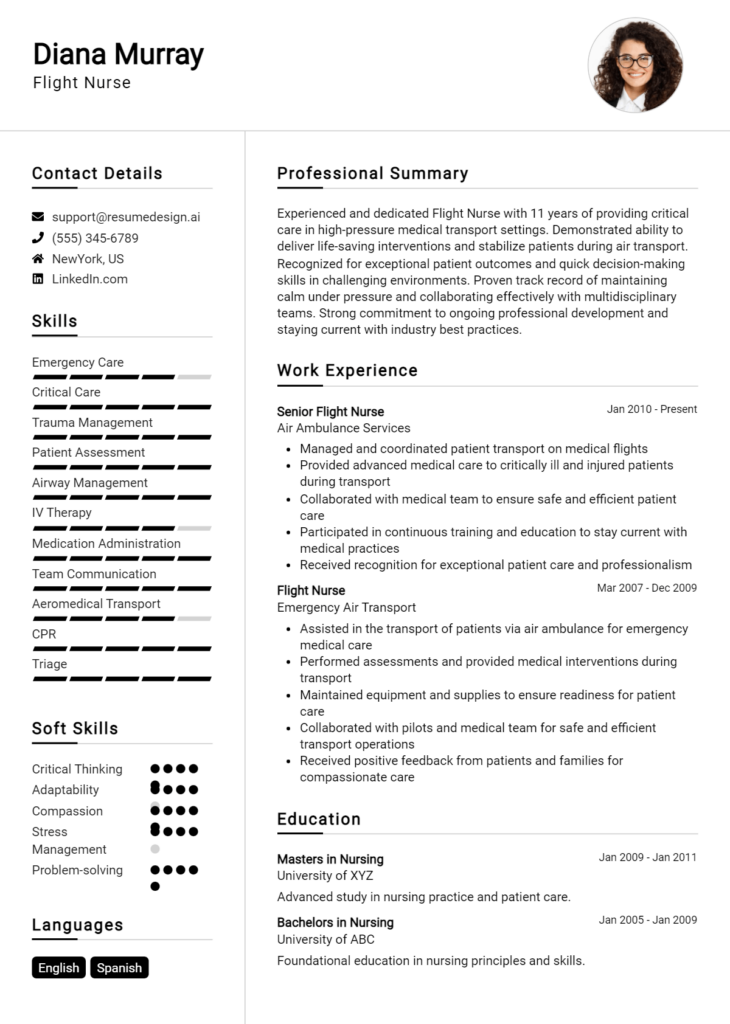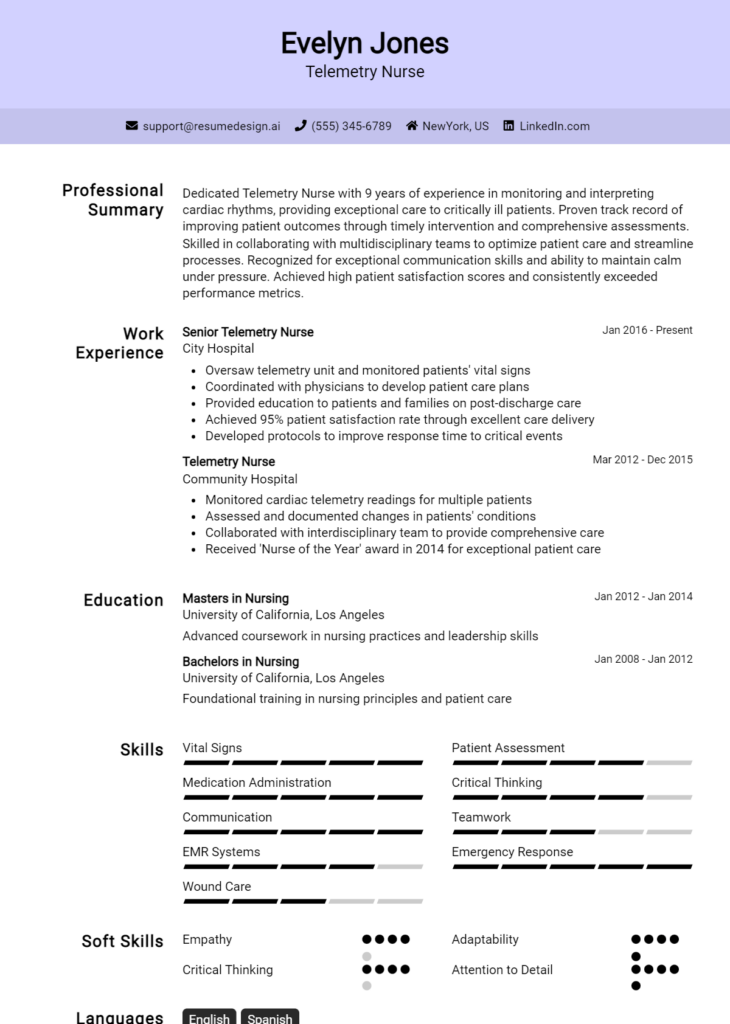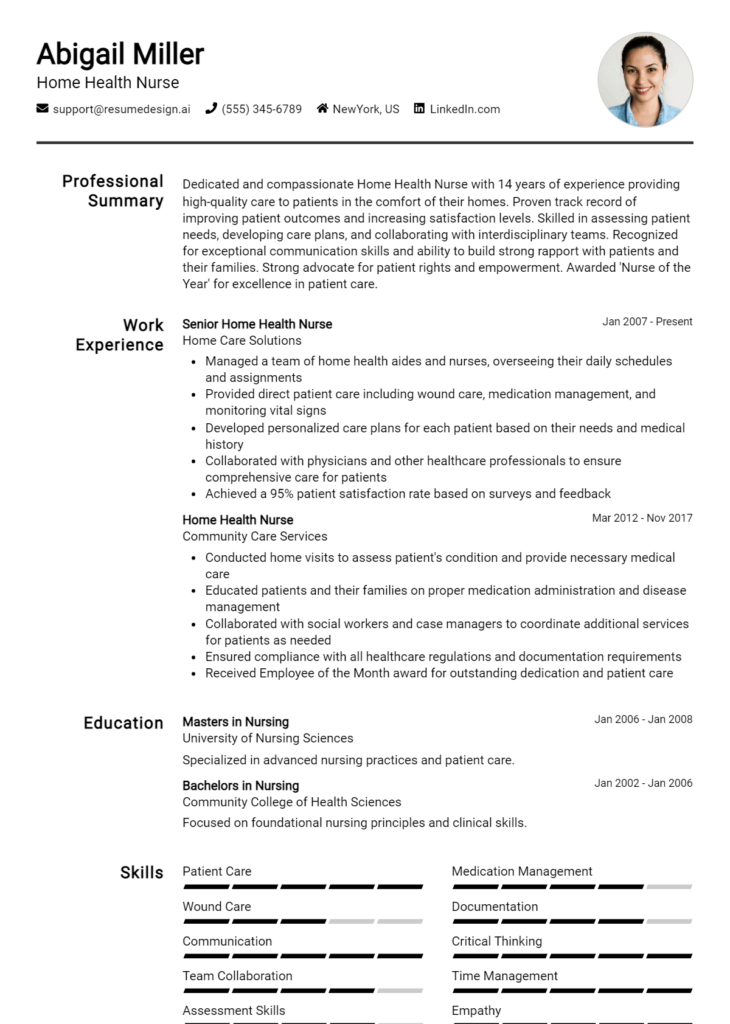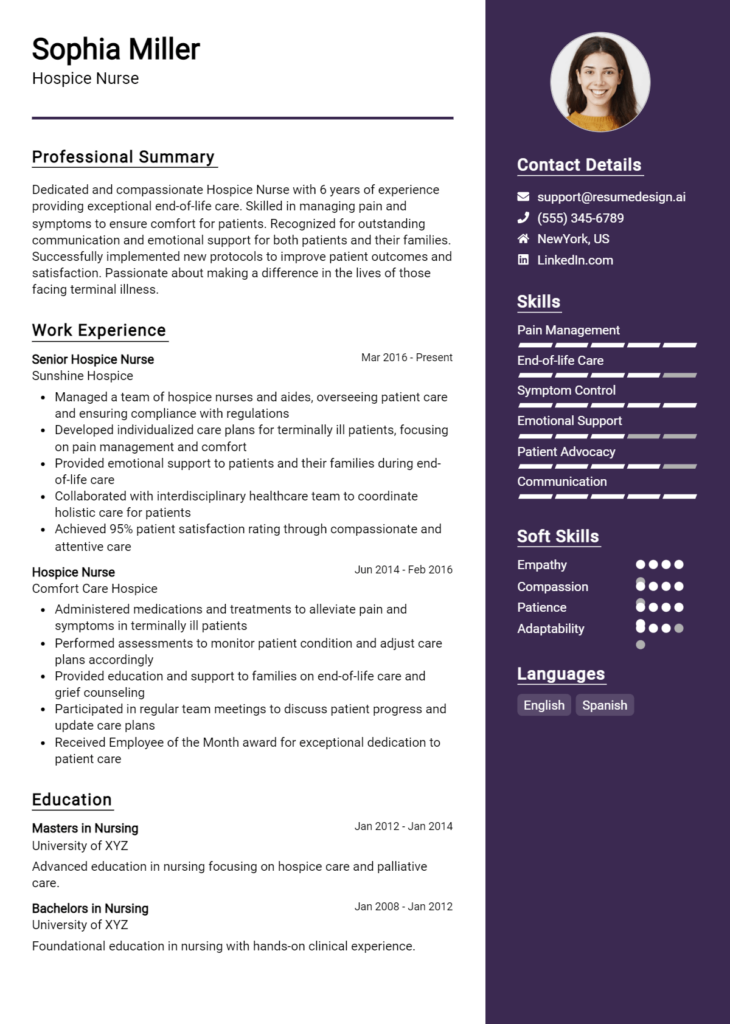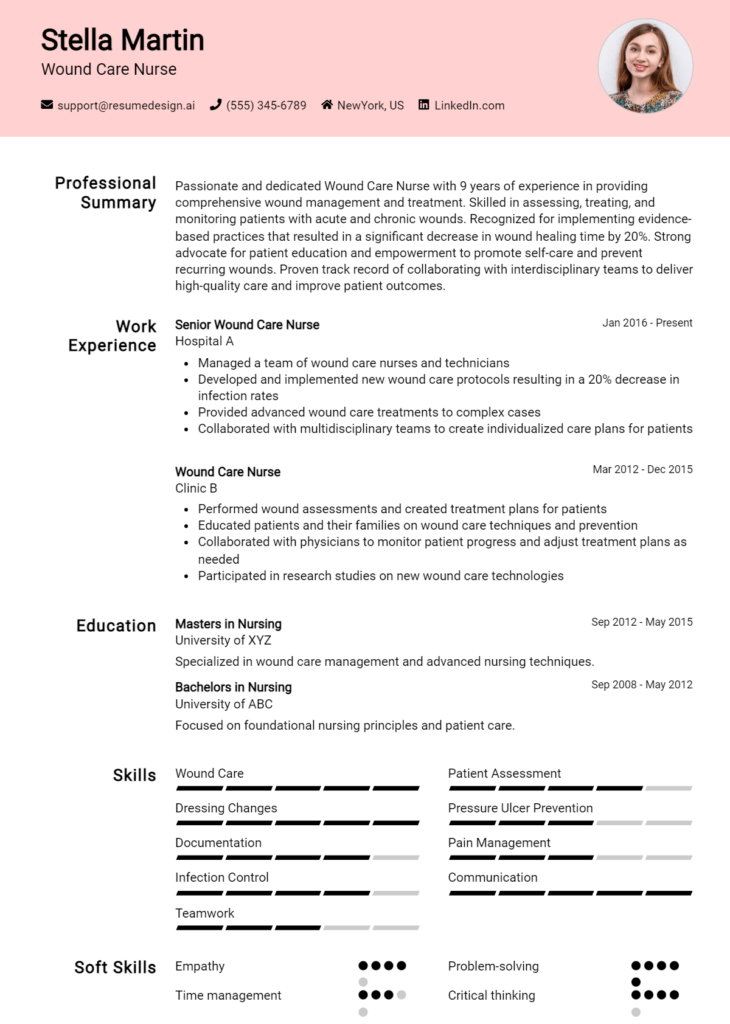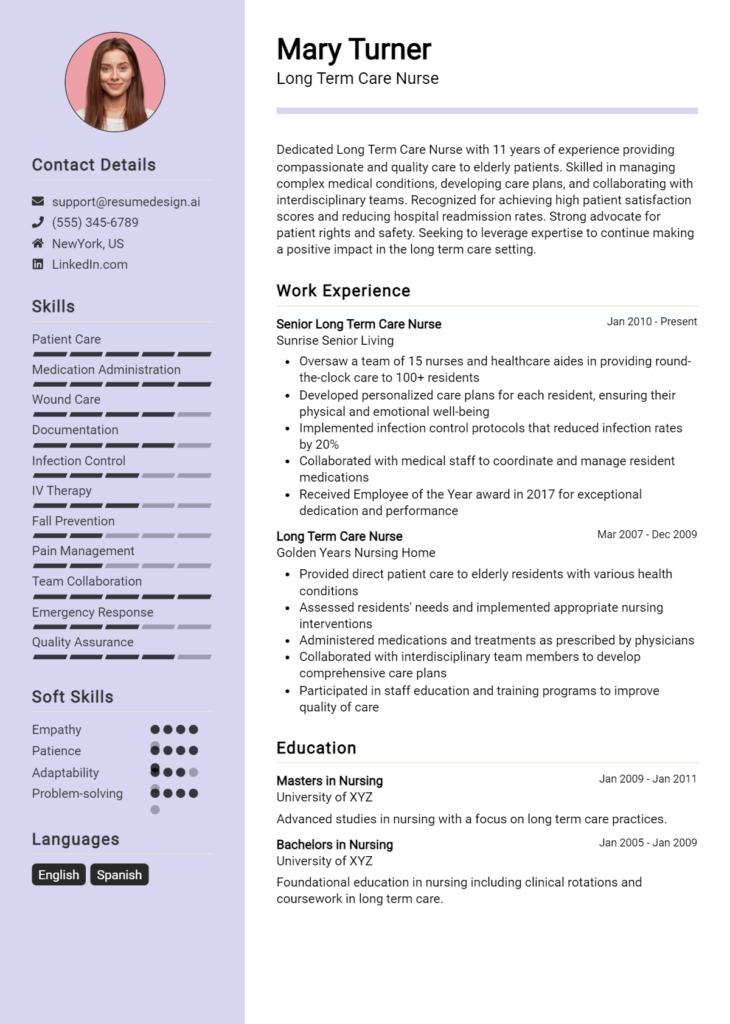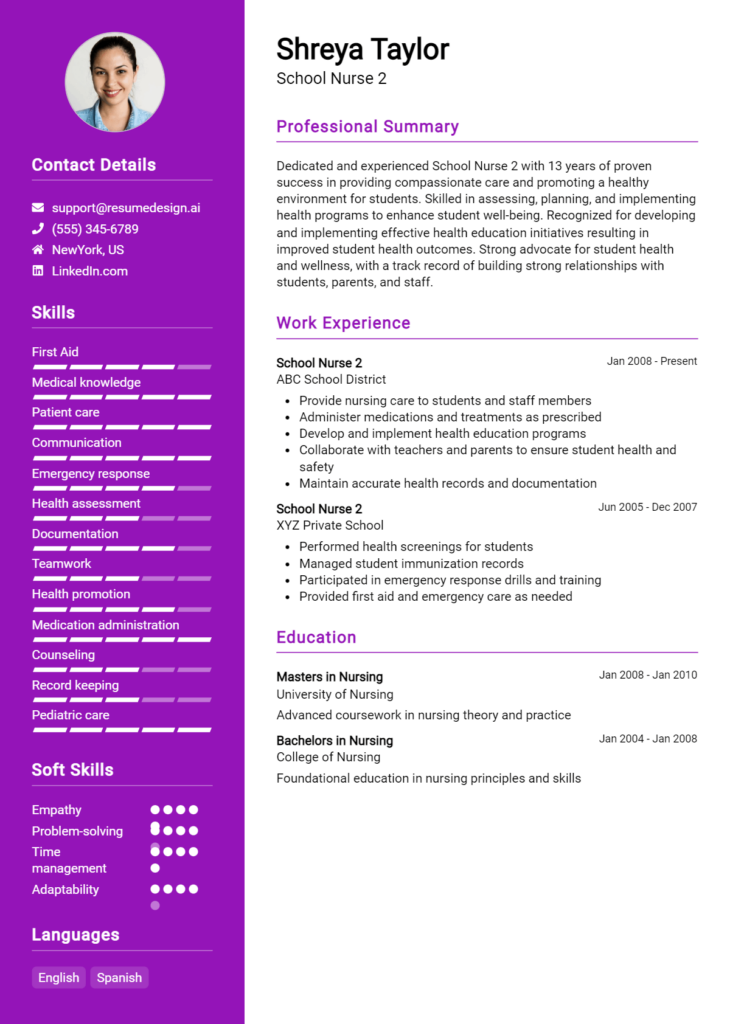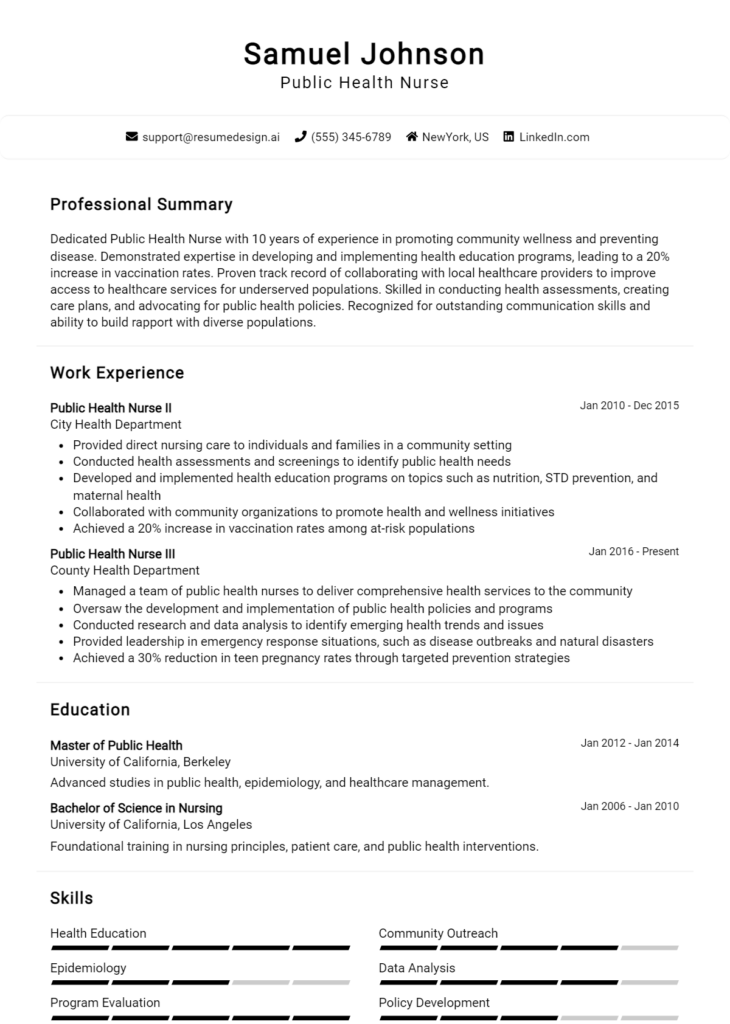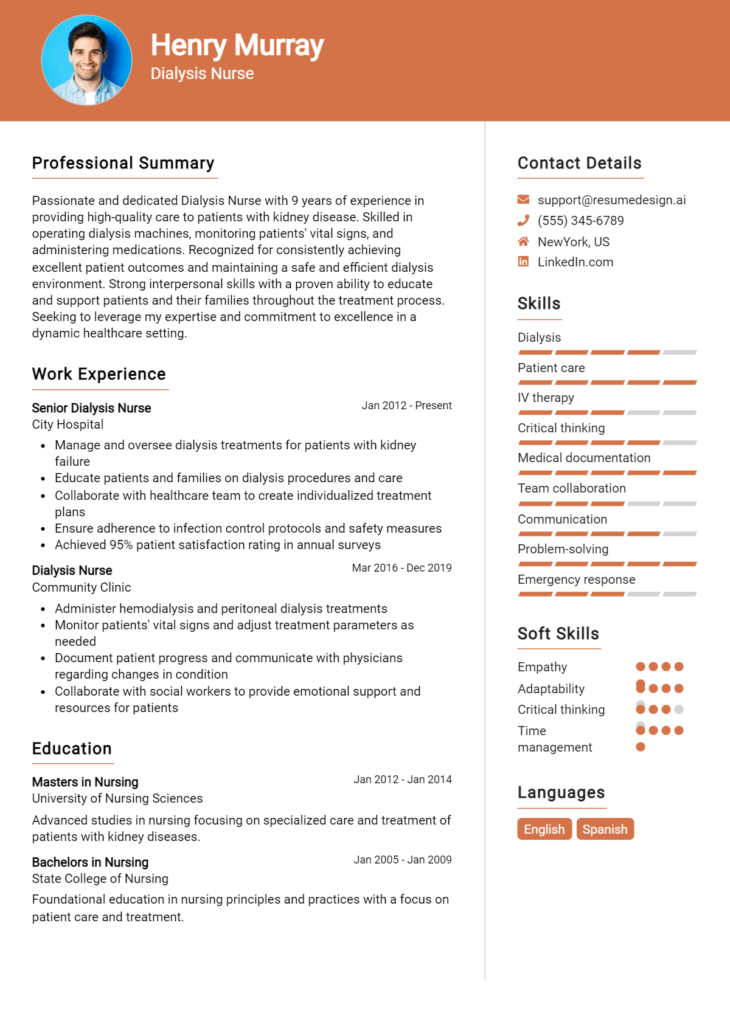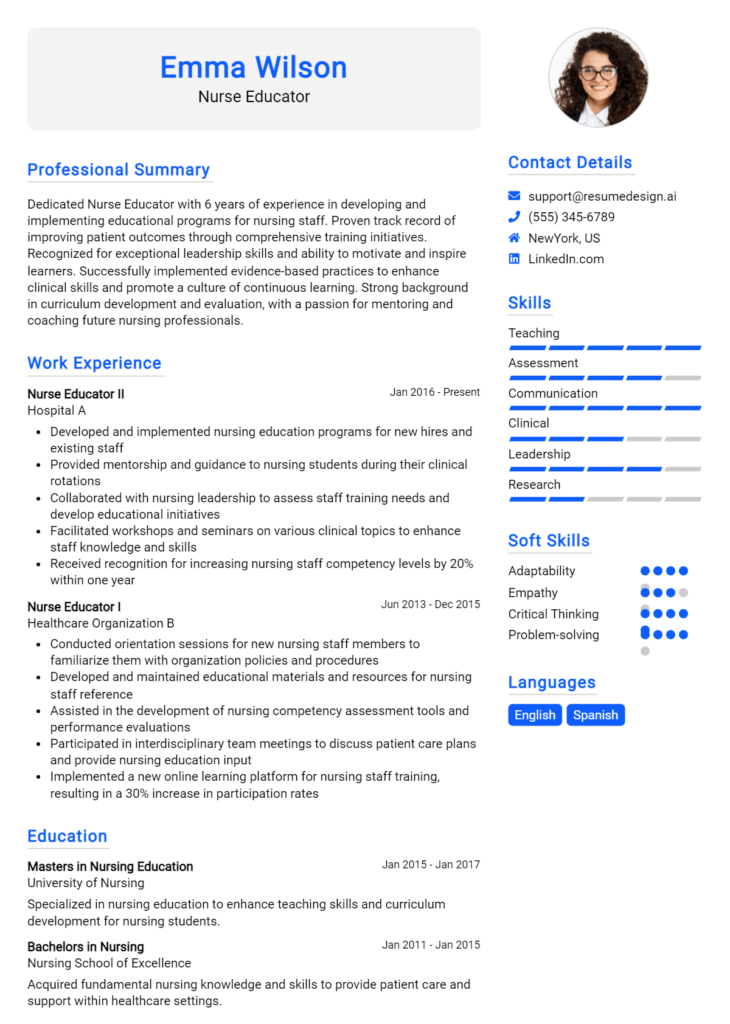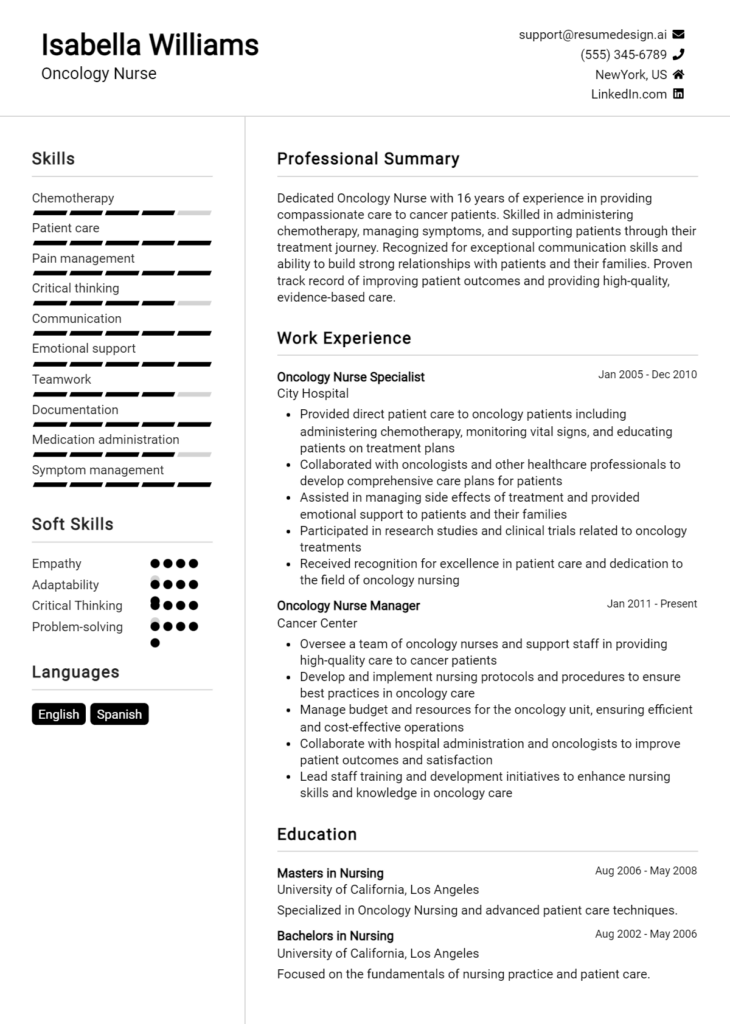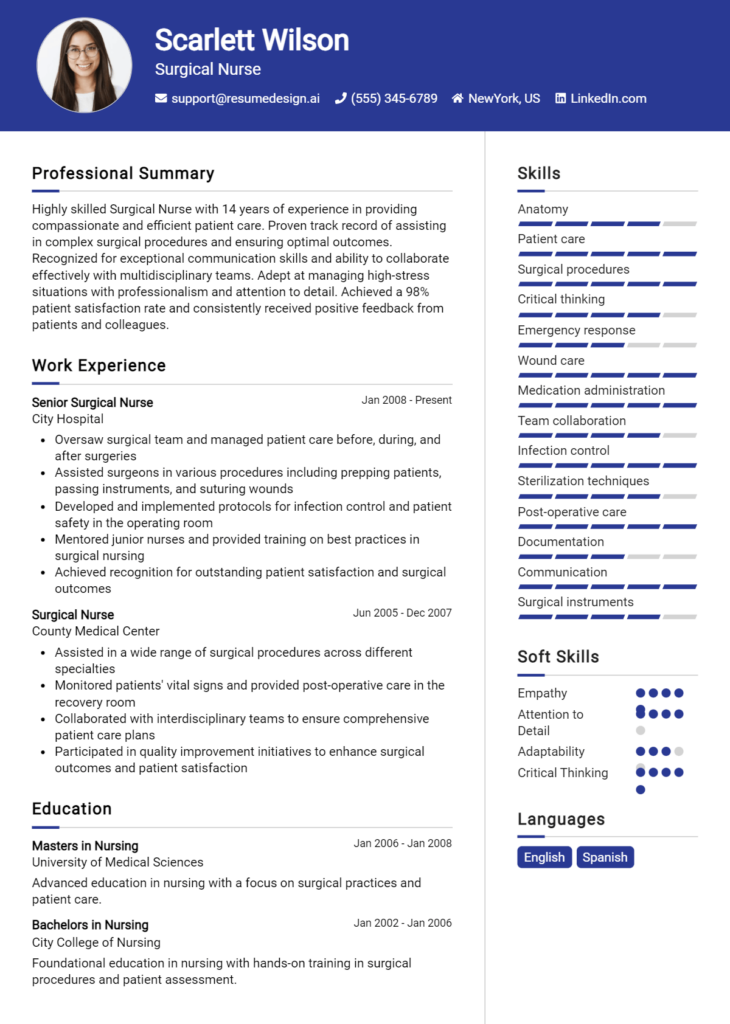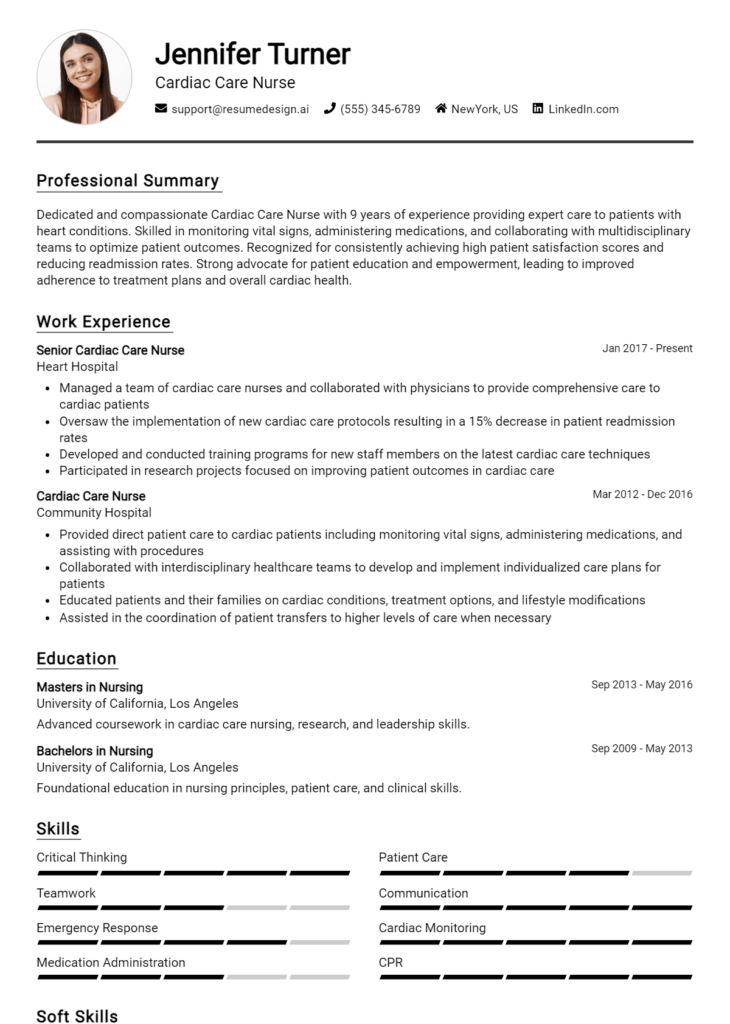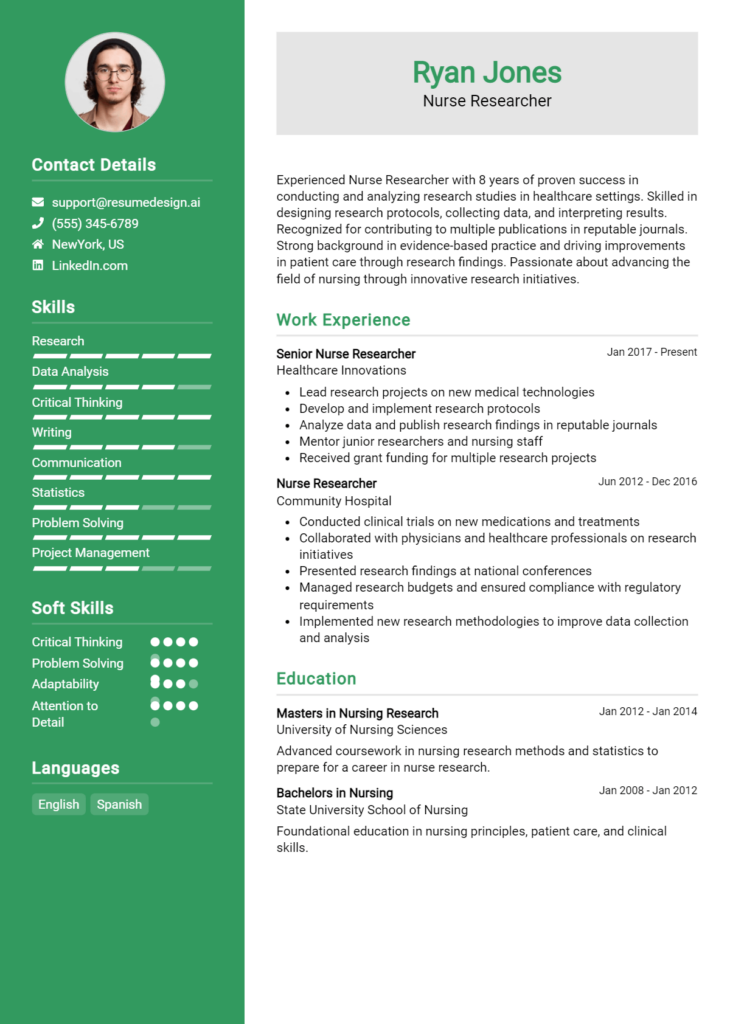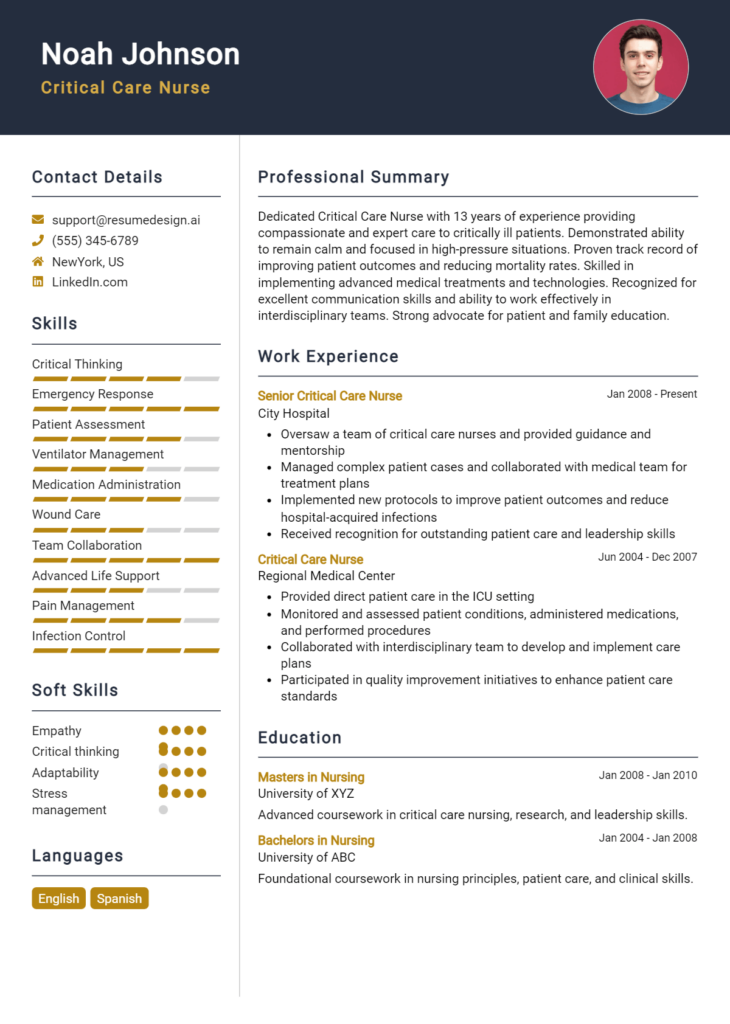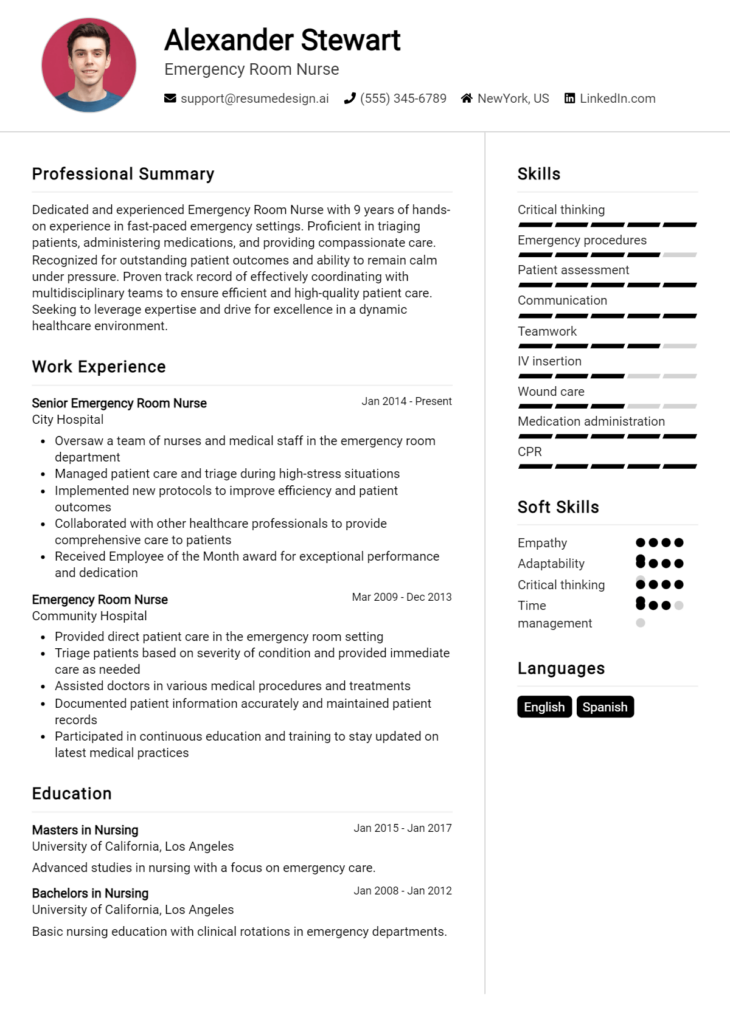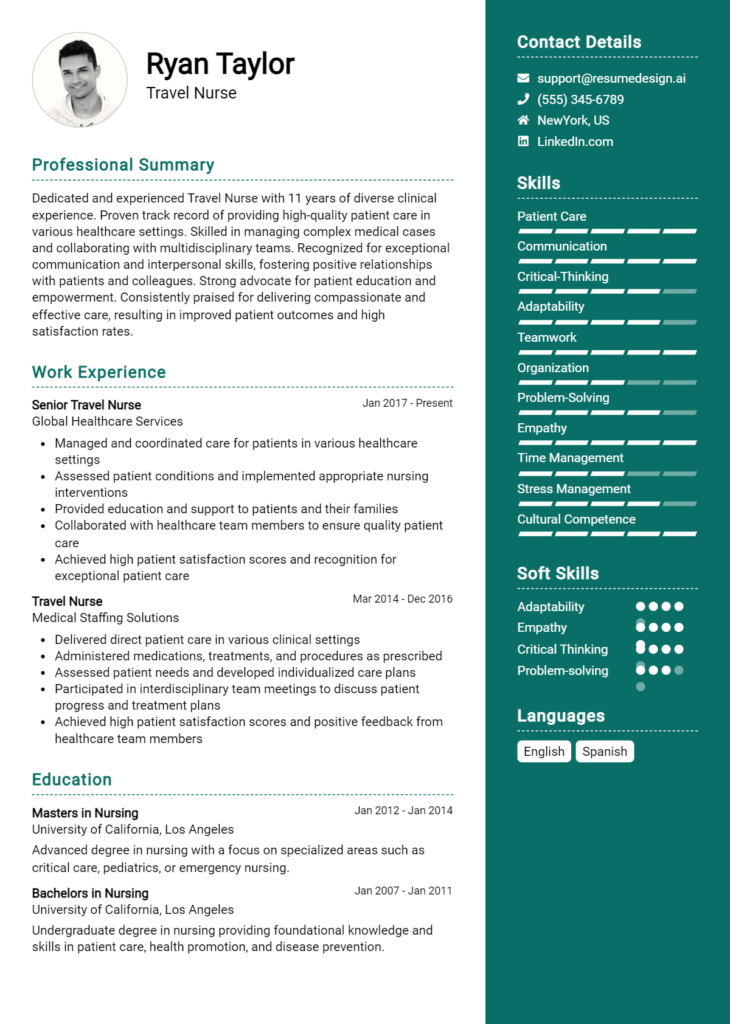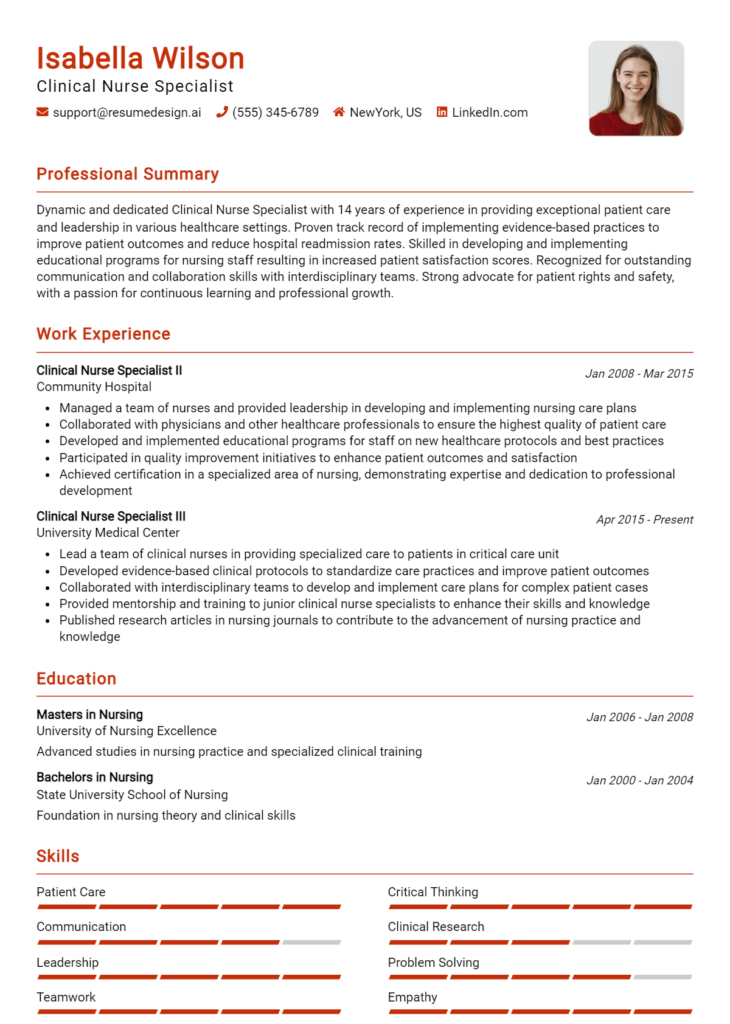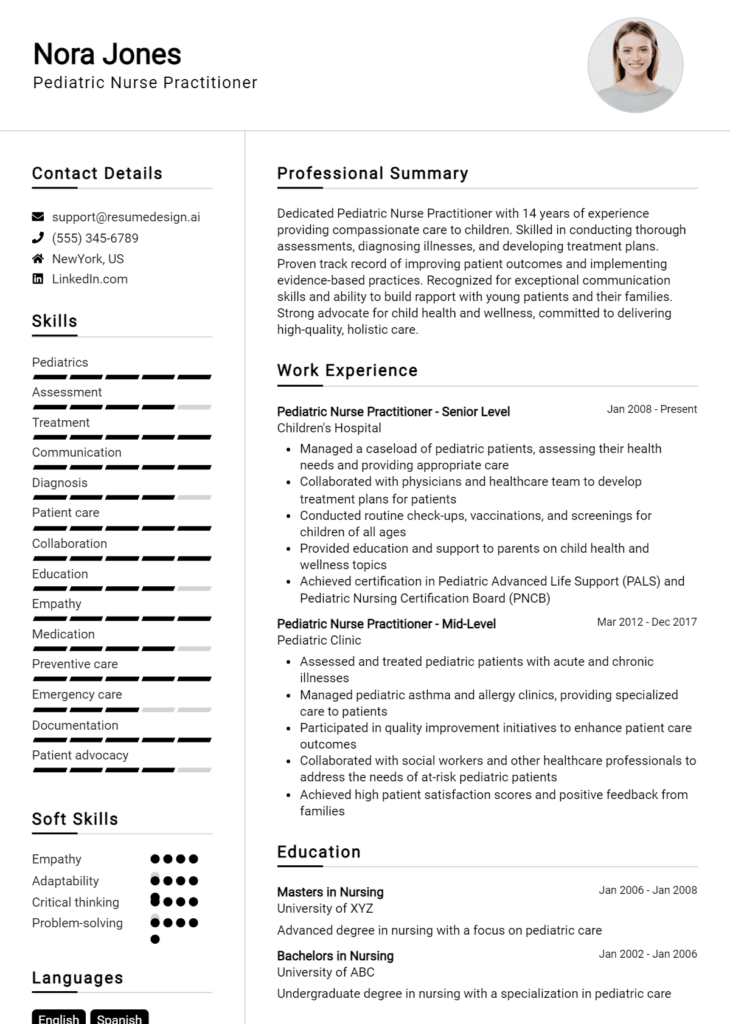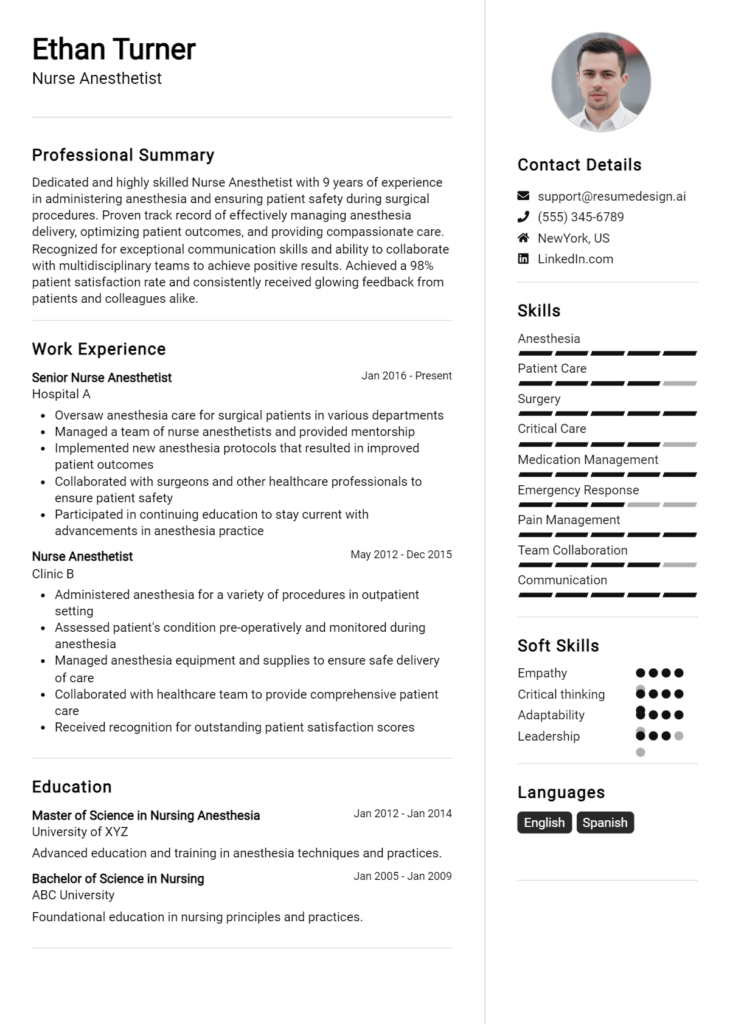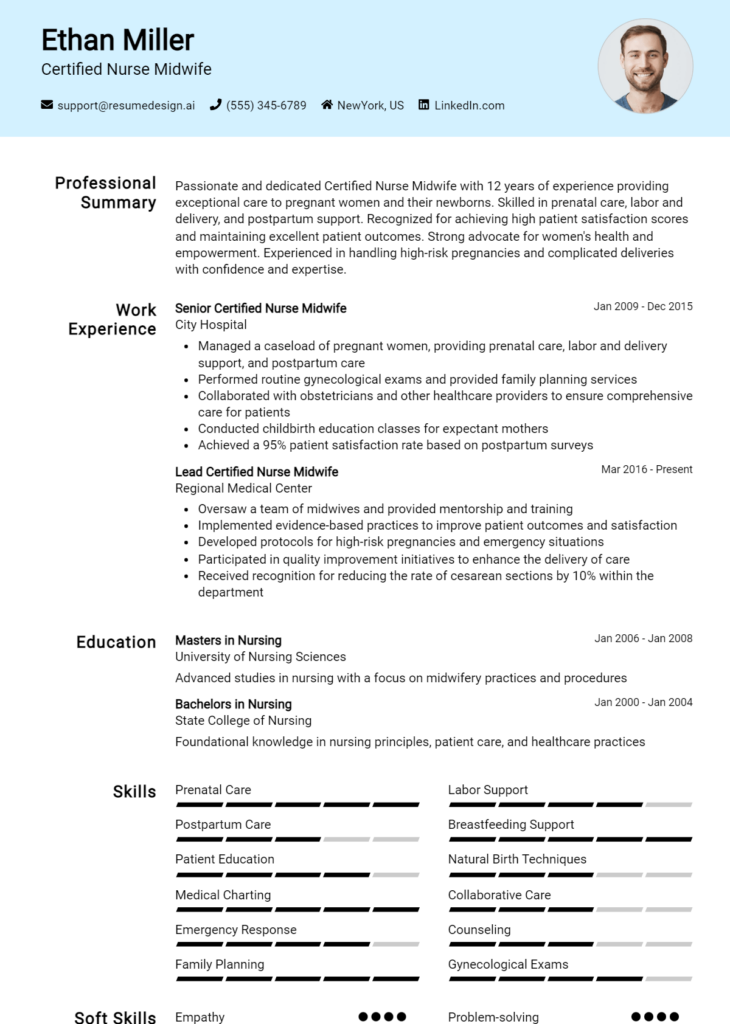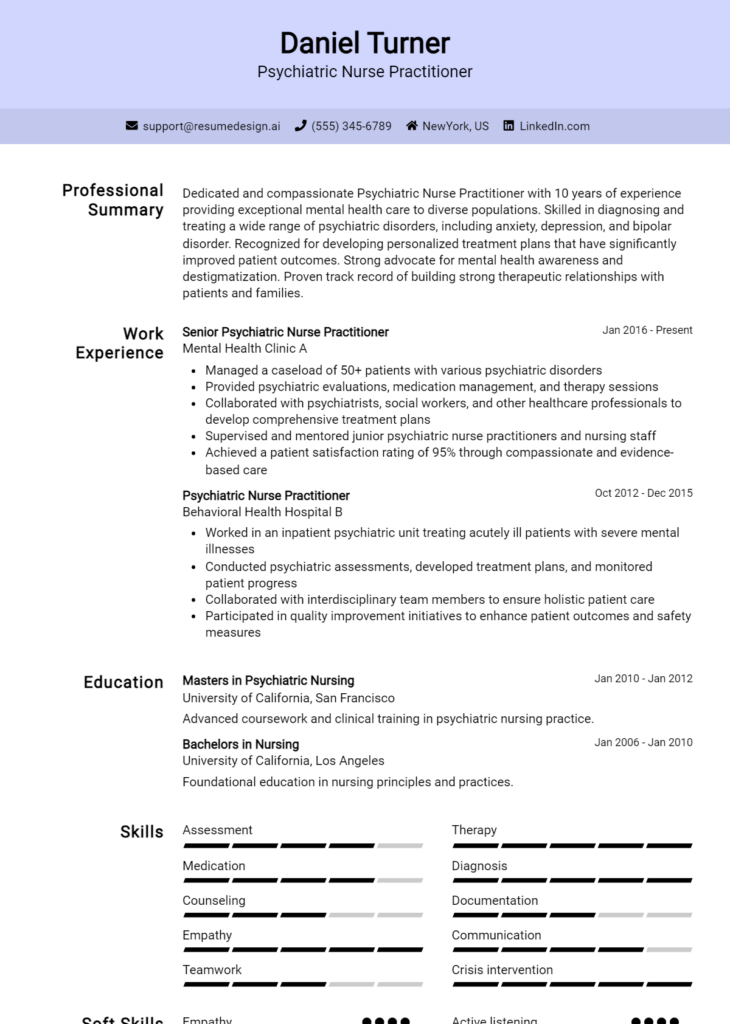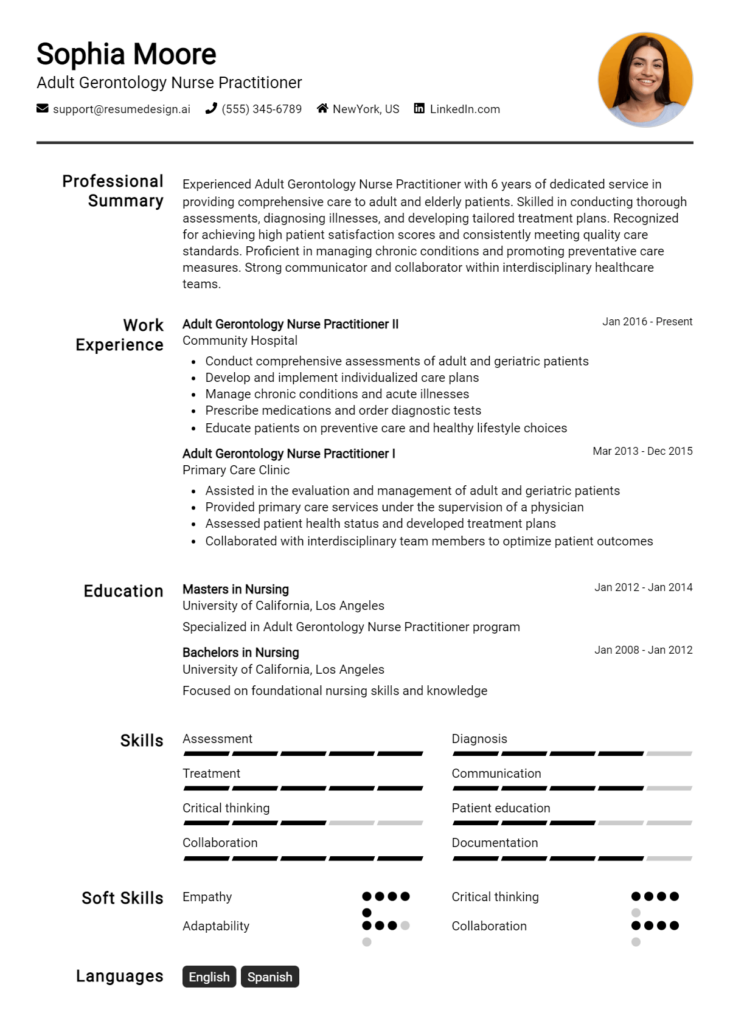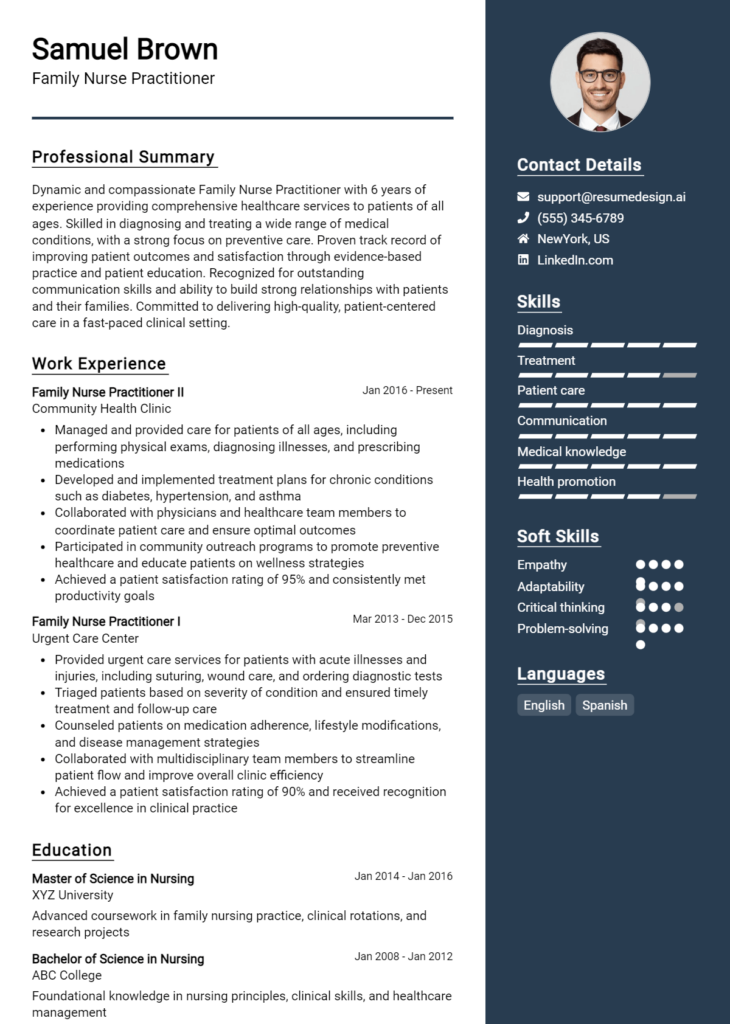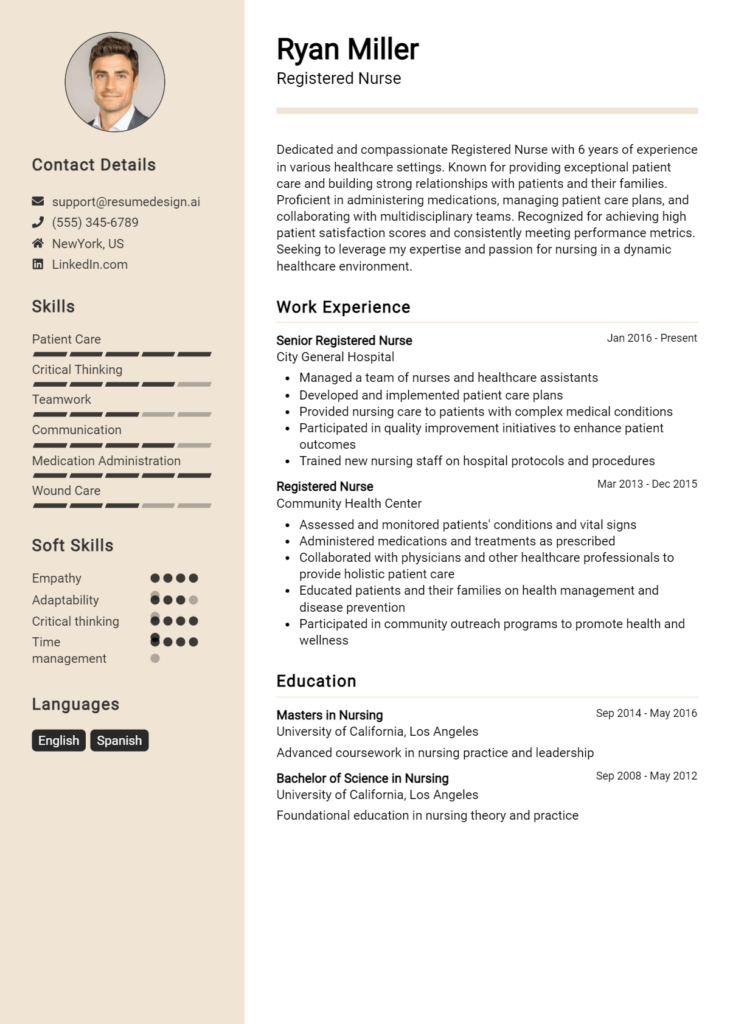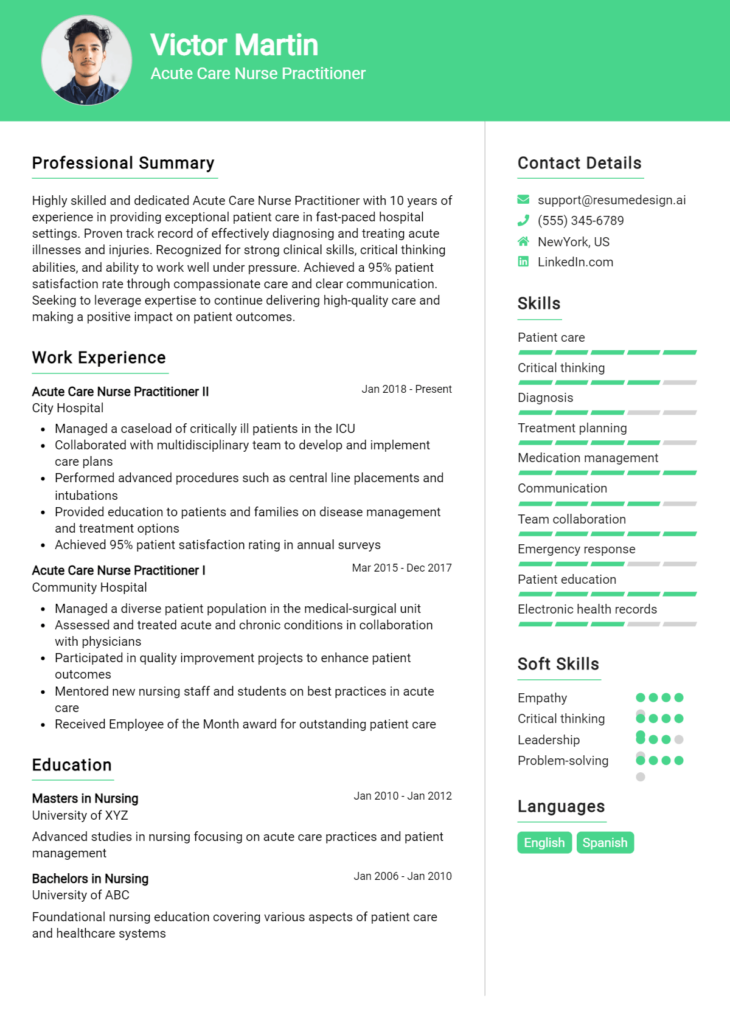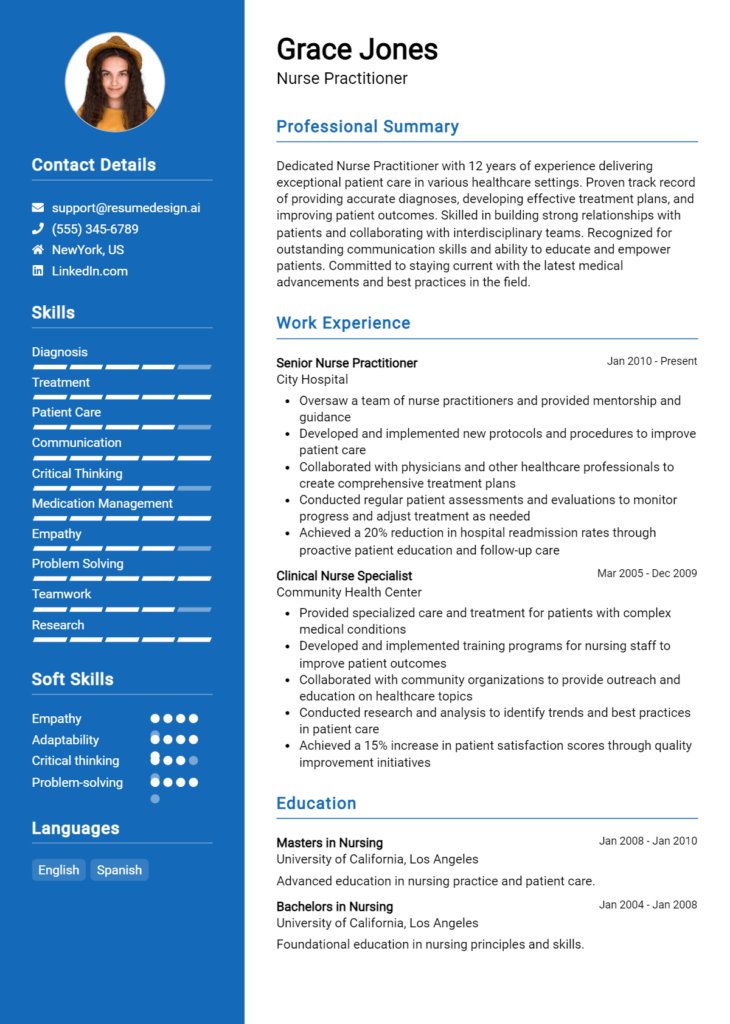Neonatal Nurse Practitioner Core Responsibilities
A Neonatal Nurse Practitioner (NNP) plays a vital role in providing advanced care to newborns, particularly those with complex medical needs. Key responsibilities include performing assessments, diagnosing conditions, and implementing treatment plans while collaborating with physicians, nurses, and other healthcare professionals. Essential skills encompass strong clinical judgment, technical proficiency, and effective communication. These abilities are crucial for ensuring high-quality care and achieving organizational goals. A well-structured resume can effectively highlight these qualifications, showcasing the NNP's impact on patient outcomes and interdisciplinary teamwork.
Common Responsibilities Listed on Neonatal Nurse Practitioner Resume
- Conduct comprehensive assessments of neonatal patients.
- Develop and implement individualized care plans.
- Monitor and interpret diagnostic tests and lab results.
- Administer medications and perform procedures as needed.
- Collaborate with interdisciplinary teams to enhance patient care.
- Educate families on neonatal care and health management.
- Lead quality improvement initiatives in neonatal care.
- Participate in research to advance neonatal nursing practices.
- Provide emergency care in critical situations.
- Document patient care activities accurately and timely.
- Advocate for the needs of neonates and their families.
- Stay updated with the latest advancements in neonatal care.
High-Level Resume Tips for Neonatal Nurse Practitioner Professionals
In the competitive field of neonatal nursing, a well-crafted resume serves as a crucial first impression for potential employers. As Neonatal Nurse Practitioners (NNPs), showcasing your unique blend of skills and achievements is essential in distinguishing yourself from other candidates. Your resume is not just a summary of your experience; it reflects your expertise in providing specialized care to vulnerable newborns and their families. This guide aims to equip you with practical and actionable resume tips tailored specifically for Neonatal Nurse Practitioner professionals, ensuring that your application stands out in a crowded job market.
Top Resume Tips for Neonatal Nurse Practitioner Professionals
- Tailor your resume to the specific job description, highlighting relevant skills and experiences that match the employer's needs.
- Include a strong summary statement at the top of your resume that encapsulates your career goals and key qualifications as a Neonatal Nurse Practitioner.
- Showcase your clinical experience by detailing the types of neonatal care you have provided, including any specialized procedures or interventions.
- Quantify your achievements where possible, such as the number of patients cared for, successful outcomes, or any improvements in patient care metrics.
- Highlight any certifications, training, or continuing education relevant to neonatal nursing, such as NRP (Neonatal Resuscitation Program) or STABLE (Sugar and Temperature, Airway, Blood Pressure, Lab Work, Emotional Support).
- Emphasize your skills in communication and teamwork, as collaboration with physicians and families is vital in neonatal care.
- Include any leadership roles or responsibilities, such as mentoring new nurses or leading quality improvement initiatives within your unit.
- Use action verbs and concise language to convey your responsibilities and accomplishments effectively.
- Ensure your resume is well-organized, visually appealing, and free of errors, as professionalism in presentation is key.
By implementing these targeted resume tips, you can significantly increase your chances of landing a job in the Neonatal Nurse Practitioner field. A polished resume that clearly communicates your qualifications and passion for neonatal care will not only capture the attention of hiring managers but also demonstrate your commitment to providing exceptional care for newborns and their families.
Why Resume Headlines & Titles are Important for Neonatal Nurse Practitioner
In the competitive field of neonatal nursing, the importance of a well-crafted resume headline or title cannot be overstated. For a Neonatal Nurse Practitioner, a strong headline serves as a powerful first impression that can immediately capture the attention of hiring managers. It succinctly summarizes a candidate's key qualifications and expertise in a single, impactful phrase. As the first element hiring managers see, a well-thought-out headline should be concise, relevant, and directly related to the job being applied for, setting the tone for the rest of the resume and enhancing the candidate's chances of making it to the interview stage.
Best Practices for Crafting Resume Headlines for Neonatal Nurse Practitioner
- Keep it concise—aim for one to two impactful phrases.
- Use specific terminology related to neonatal nursing to demonstrate expertise.
- Highlight key certifications or unique skills that set you apart.
- Incorporate quantifiable achievements or years of experience when relevant.
- Avoid generic phrases; tailor your headline to the specific job description.
- Use action-oriented language to convey a proactive approach to patient care.
- Ensure readability by using clear and professional language.
- Revise and refine your headline to align closely with your career goals.
Example Resume Headlines for Neonatal Nurse Practitioner
Strong Resume Headlines
Compassionate Neonatal Nurse Practitioner with 5+ Years of Experience in High-Risk Care
Certified Neonatal Nurse Practitioner Specializing in Evidence-Based Practice and Family-Centered Care
Dedicated NNP with Proven Success in Reducing Neonatal Complications Through Innovative Care Plans
Experienced Neonatal Nurse Practitioner Committed to Improving Outcomes in Premature Infants
Weak Resume Headlines
Nurse Looking for Job
Healthcare Professional with Experience
Neonatal Nurse Practitioner
The strong headlines are effective because they clearly communicate specific qualifications and experiences that are relevant to the role of a Neonatal Nurse Practitioner. They highlight unique skills and achievements that differentiate the candidate from others. In contrast, the weak headlines fail to impress due to their vagueness and lack of detail. They do not provide any insight into the candidate's expertise or accomplishments, making them forgettable and less likely to capture the attention of hiring managers.
Writing an Exceptional Neonatal Nurse Practitioner Resume Summary
A well-crafted resume summary is crucial for a Neonatal Nurse Practitioner as it serves as the first impression to hiring managers. In a competitive job market, a strong summary quickly captures attention by highlighting key skills, relevant experience, and notable accomplishments that align with the demands of the role. It should be concise and impactful, effectively summarizing the candidate's qualifications while being tailored to the specific job they are applying for. This targeted approach not only showcases the candidate's fit for the position but also sets the stage for further discussion during the interview process.
Best Practices for Writing a Neonatal Nurse Practitioner Resume Summary
- Quantify achievements where possible, using numbers to demonstrate impact.
- Focus on essential skills relevant to neonatal care, such as critical thinking and patient assessment.
- Tailor the summary to match the specific job description, incorporating keywords from the posting.
- Highlight relevant certifications, such as NNP or CCRN, to enhance credibility.
- Keep it concise, aiming for 3-5 sentences that encapsulate your qualifications.
- Use action verbs to convey your contributions and accomplishments effectively.
- Showcase your experience in a variety of neonatal settings, emphasizing versatility.
- Include a personal touch that reflects your passion for neonatal nursing and patient care.
Example Neonatal Nurse Practitioner Resume Summaries
Strong Resume Summaries
Compassionate Neonatal Nurse Practitioner with over 5 years of experience providing high-quality care in Level III NICUs. Successfully managed over 300 critically ill newborns, decreasing patient morbidity rates by 20% through evidence-based interventions.
Dedicated NNP with expertise in neonatal resuscitation and complex care management. Achieved a 95% successful intubation rate in emergency scenarios, contributing to improved outcomes for premature infants under my care.
Results-driven Neonatal Nurse Practitioner with a passion for family-centered care. Led a collaborative initiative that improved patient discharge processes, reducing average NICU stay by 10 days and enhancing family satisfaction scores by 30%.
Weak Resume Summaries
Experienced nurse looking for a position in a neonatal unit where I can use my skills.
Professional NNP with some experience in the NICU. I am eager to work in a challenging environment.
The strong resume summaries effectively showcase the candidates' specific achievements and quantifiable outcomes, clearly demonstrating their relevance to the role of a Neonatal Nurse Practitioner. In contrast, the weak summaries are vague and lack specificity, failing to highlight any measurable successes or competencies that would appeal to hiring managers. This distinction underscores the importance of crafting a targeted and impactful summary that conveys a candidate's true value in the highly specialized field of neonatal nursing.
Work Experience Section for Neonatal Nurse Practitioner Resume
The work experience section of a Neonatal Nurse Practitioner (NNP) resume is critical in demonstrating the candidate's proficiency in managing complex healthcare situations, providing exceptional patient care, and leading multidisciplinary teams. This section serves as a platform to showcase not only technical skills but also the ability to deliver high-quality outcomes in high-pressure environments. By quantifying achievements and aligning experiences with industry standards, candidates can effectively communicate their value to potential employers, highlighting their contributions to neonatal care and their commitment to professional excellence.
Best Practices for Neonatal Nurse Practitioner Work Experience
- Use clear and concise language to describe your responsibilities and achievements.
- Quantify your results by including metrics such as patient outcomes, efficiency improvements, and team performance.
- Highlight specific technical skills relevant to neonatal care, such as ventilator management and neonatal resuscitation.
- Showcase your ability to work collaboratively in a multidisciplinary team setting.
- Tailor your experience to align with job descriptions and industry standards.
- Include any leadership roles or initiatives that demonstrate your ability to manage teams effectively.
- Emphasize continuous professional development through certifications and specialized training.
- Provide context for your accomplishments to illustrate their significance in patient care and outcomes.
Example Work Experiences for Neonatal Nurse Practitioner
Strong Experiences
- Led a team of 10 healthcare professionals in a neonatal intensive care unit (NICU), improving patient care protocols that resulted in a 30% decrease in neonatal mortality rates.
- Implemented a new electronic health record system, resulting in a 25% increase in documentation efficiency and enhanced communication among care teams.
- Managed care for over 100 premature infants, achieving a 95% success rate in transitioning patients from NICU to home care within expected timelines.
- Coordinated a multidisciplinary approach for high-risk cases, leading to an improvement in patient satisfaction scores by 40% over a six-month period.
Weak Experiences
- Worked in a hospital with newborns, providing care and support.
- Assisted in various tasks in the NICU without specifying any outcomes or responsibilities.
- Gained experience in a busy healthcare environment.
- Participated in team meetings and discussions related to patient care.
The examples listed as strong experiences effectively highlight quantifiable outcomes, technical leadership, and collaboration, showcasing the candidate's direct impact on patient care and team performance. In contrast, the weak experiences are vague and lack specificity, failing to demonstrate the candidate's contributions or achievements, which diminishes their overall impact in the resume. Strong examples provide measurable results and context, while weak examples do not convey the candidate's capabilities or successes in a meaningful way.
Education and Certifications Section for Neonatal Nurse Practitioner Resume
The education and certifications section of a Neonatal Nurse Practitioner resume plays a crucial role in showcasing the candidate's academic credentials and professional qualifications. This section not only highlights the formal education necessary for the role but also emphasizes relevant certifications and ongoing learning efforts that demonstrate the candidate's commitment to excellence in neonatal care. By including specific coursework, specialized training, and industry-recognized certifications, candidates can significantly enhance their credibility and align themselves with the expectations of potential employers in this highly specialized field.
Best Practices for Neonatal Nurse Practitioner Education and Certifications
- Include your highest degree first, emphasizing advanced degrees such as a Master of Science in Nursing (MSN) or Doctor of Nursing Practice (DNP).
- List relevant certifications, such as Neonatal Nurse Practitioner (NNP) certification, prominently to highlight your qualifications.
- Incorporate specific coursework that directly relates to neonatal care, such as advanced pathophysiology or neonatal pharmacology.
- Highlight any additional training or fellowships that demonstrate your specialized skills and knowledge in neonatal nursing.
- Ensure all certifications are current and include dates of renewal or expiration to reflect ongoing professional development.
- Tailor your education and certifications section to match the job description, emphasizing the most relevant qualifications for each position.
- Consider including any honors or awards received during your education to further distinguish yourself.
- Use clear formatting and bullet points for easy readability, allowing hiring managers to quickly identify key qualifications.
Example Education and Certifications for Neonatal Nurse Practitioner
Strong Examples
- Master of Science in Nursing (MSN), Neonatal Nurse Practitioner, University of California, 2020
- Certified Neonatal Nurse Practitioner (NNP-BC), National Certification Corporation, 2021
- Advanced Neonatal Care Course, Pediatric Critical Care Training Institute, 2022
- Bachelor of Science in Nursing (BSN), University of Florida, 2018
Weak Examples
- Associate Degree in Nursing, Community College, 2015 (not advanced enough for NNP role)
- Basic Life Support (BLS) Certification, expired 2020
- Certificate in Medical Billing and Coding, 2019 (not relevant to neonatal nursing)
- High School Diploma, 2010 (not applicable for advanced nursing roles)
The strong examples are considered robust because they reflect advanced education and relevant certifications that align with the responsibilities of a Neonatal Nurse Practitioner. These qualifications indicate a high level of expertise and a commitment to the field. Conversely, the weak examples lack relevance or are outdated, demonstrating a disconnect from the necessary qualifications for the role, which could hinder the candidate's chances of being considered for a position.
Top Skills & Keywords for Neonatal Nurse Practitioner Resume
In the competitive field of neonatal nursing, crafting a compelling resume that highlights your essential skills is crucial for standing out to potential employers. As a Neonatal Nurse Practitioner (NNP), you play a vital role in the care of premature and critically ill newborns. Your resume should effectively showcase both your hard and soft skills, as these attributes not only demonstrate your technical proficiency but also your ability to empathize and communicate effectively with families and healthcare teams. By including the right skills in your resume, you can paint a comprehensive picture of your qualifications and readiness for this challenging yet rewarding role.
Top Hard & Soft Skills for Neonatal Nurse Practitioner
Soft Skills
- Compassionate care
- Effective communication
- Critical thinking
- Team collaboration
- Problem-solving
- Emotional resilience
- Attention to detail
- Adaptability
- Time management
- Advocacy for patients
Hard Skills
- Advanced neonatal life support (ANLS)
- Neonatal resuscitation program (NRP) certification
- Clinical assessment techniques
- Pharmacology and medication administration
- Ventilator management
- Knowledge of neonatal diseases and conditions
- Familiarity with electronic health records (EHR)
- Diagnostic imaging interpretation
- Invasive procedures (e.g., intubation, central line placement)
- Data analysis and reporting
By emphasizing these skills in your resume, you can effectively communicate your qualifications and experience to prospective employers while also illustrating your commitment to providing high-quality care in neonatal settings. For more information on how to highlight your work experience and skills, consider reviewing additional resources that can help you tailor your resume for success.
Stand Out with a Winning Neonatal Nurse Practitioner Cover Letter
I am writing to express my enthusiastic interest in the Neonatal Nurse Practitioner position at [Hospital/Clinic Name], as advertised on [Job Board/Website]. With a Master of Science in Nursing and over [X years] of specialized experience in neonatal care, I am well-equipped to provide high-quality, evidence-based care to critically ill neonates and their families. My commitment to improving patient outcomes and my ability to work collaboratively as part of a multidisciplinary team make me a strong candidate for this role.
Throughout my career, I have honed my clinical skills in various settings, including the NICU at [Previous Institution or Experience]. My experience encompasses comprehensive assessments, advanced diagnostic skills, and the development and implementation of individualized care plans for premature and critically ill infants. I am adept at performing procedures such as intubation, central line placement, and thoracentesis, ensuring that I deliver safe and effective interventions while prioritizing the comfort and well-being of both my patients and their families.
I pride myself on my strong communication skills, which enable me to effectively educate families about their infant's condition and treatment options. I understand that the neonatal period can be a particularly challenging time for parents, and I strive to provide compassionate support and guidance. Additionally, I am committed to staying current with the latest research and advancements in neonatal care, allowing me to incorporate best practices into my daily work. I am excited about the opportunity to contribute my expertise to [Hospital/Clinic Name] and to work alongside a team dedicated to providing exceptional care to our youngest patients.
Thank you for considering my application. I look forward to the possibility of discussing how my background, skills, and passion for neonatal nursing can align with the goals of your team. I am eager to bring my dedication to high-quality patient care to [Hospital/Clinic Name] and to positively impact the lives of the infants and families we serve.
Common Mistakes to Avoid in a Neonatal Nurse Practitioner Resume
When crafting a resume as a Neonatal Nurse Practitioner (NNP), it's crucial to present your qualifications and experiences clearly and effectively. However, many candidates fall into common pitfalls that can detract from their professionalism and make their application less appealing to potential employers. By avoiding these mistakes, you can enhance your chances of standing out in a competitive job market.
Neglecting to Tailor the Resume: Failing to customize your resume for each position can make it seem generic. Highlight relevant skills and experiences that align specifically with the job description.
Overloading with Irrelevant Information: Including excessive details about unrelated experiences or skills can clutter your resume. Focus on what is most pertinent to neonatal care and your nursing practice.
Using Jargon or Abbreviations: While you may be familiar with certain terms, potential employers may not be. Use clear language to describe your qualifications and avoid excessive jargon.
Inconsistent Formatting: A resume that lacks a uniform format can appear unprofessional. Ensure consistent font sizes, bullet points, and spacing throughout to create a polished look.
Ignoring Keywords: Many employers use Applicant Tracking Systems (ATS) to screen resumes. Failing to include industry-specific keywords can result in your application being overlooked.
Listing Duties Instead of Achievements: Simply stating your job duties can make your resume dull. Instead, focus on quantifiable achievements and the impact you made in previous roles.
Failing to Include Certifications: As an NNP, it is essential to list your relevant certifications. Omitting this information can lead to missed opportunities, as employers often look for specific qualifications.
Having Typos and Grammatical Errors: Spelling or grammatical mistakes can undermine your credibility. Always proofread your resume multiple times or consider having someone else review it before submission.
Conclusion
As a Neonatal Nurse Practitioner, you play a vital role in providing specialized care to newborns, particularly those who are premature or facing health challenges. Your responsibilities include diagnosing and treating a variety of conditions, collaborating with healthcare teams, and educating families about neonatal care. Given the complexity and importance of your role, it is crucial to present an outstanding resume that highlights your skills, experience, and qualifications effectively.
In this article, we covered the essential components of a strong Neonatal Nurse Practitioner resume, including the importance of tailoring your resume to specific job descriptions, emphasizing relevant clinical experience, and showcasing your certifications and education. We also discussed the significance of including measurable achievements that demonstrate your impact in previous roles, as well as the value of professional affiliations and ongoing education in the field.
Now that you have the insights to refine your resume, take action! It's time to review and update your Neonatal Nurse Practitioner resume to ensure it stands out to potential employers. Utilize the available resources to enhance your application. Explore our resume templates for structured designs, try out the resume builder for easy customization, and check out resume examples to gain inspiration. Don’t forget to create a compelling first impression with our cover letter templates. By taking these steps, you can significantly improve your chances of landing your next opportunity in this rewarding field!

